Search
Did you mean: Circe?
Search Results
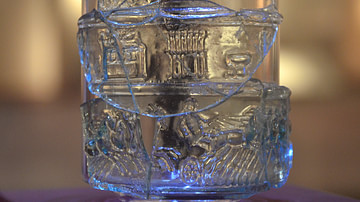
Image
Beaker with Circus Scene
Fragmented mould-blown beaker with a circus scene and the inscription 'vade Pyramus' (meaning 'go Pyramus!'), a renowned charioteer from Pompeii. It also shows the spina (central barrier) of the Circus Maximus in the middle band. Below the...
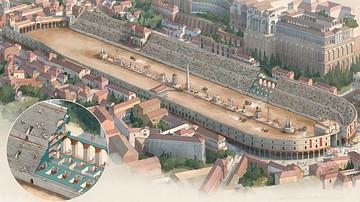
Image
Illustration of Circus Maximus, Rome
Illustration of the Circus Maximus in Rome, as it might have appeared in Antiquity by Rocío Espin. Courtesy of Ancient History Magazine / Karwansaray Publishers.
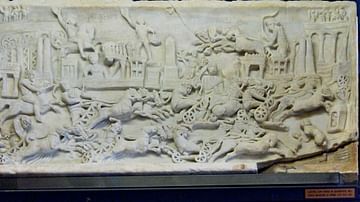
Image
Roman Quadriga Race in the Circus Maximus
A releif showing a quadriga race in the Cricus Maximus, Rome (2-3rd century); Trinci Palace, Foligno, Italy. The starting gates can be seen on the far left. The upper left-hand corner shows the magistrate who will begin the race by dropping...
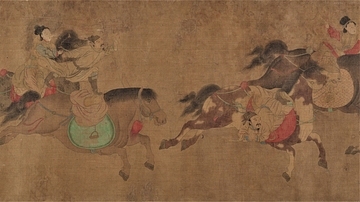
Image
Mongol Circus
This handscroll was created c. 1271 - 1644 CE in the style of Zhao Yong (1289 – c. after 1360 CE)by an unidentified Chinese artist. The scroll was created during either the Yuan Dynasty or the Ming Dynasty. Ink and color on silk. 27 x...
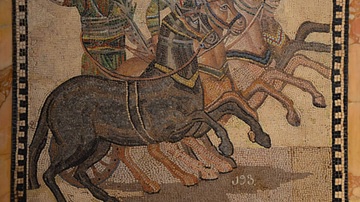
Image
Mosaic with Circus Scene
Mosaic depicting a quadriga of the factio prasina (‘the Greens,’ representing the spring), 3rd century CE, from Rome. (National Archaeological Museum of Spain, Madrid) The green team is victorious. Their admired steeds have performed splendidly...
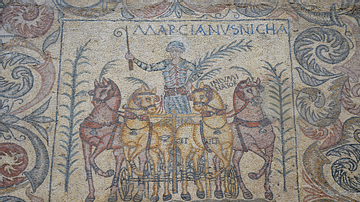
Article
Chariot Racing in Ancient Rome
Chariot racing was very big business in ancient Rome. There was a whole industry built around the factions, the four professional stables known by their team colour – Blue, Green, Red, and White –, providing all that was required for a race...

Article
Roman Games, Chariot Races & Spectacle
If there was one thing the Roman people loved it was spectacle and the opportunity of escapism offered by weird and wonderful public shows which assaulted the senses and ratcheted up the emotions. Roman rulers knew this well and so to increase...
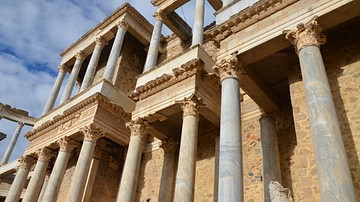
Article
Top 5 Roman Sites in Southern Spain
Almost 700 years of continuous Roman occupation have left impressive traces in the Spanish landscape. Spain was then known as 'Hispania' and is now a fascinating location for the archaeological traveller. The Spanish provinces were amongst...
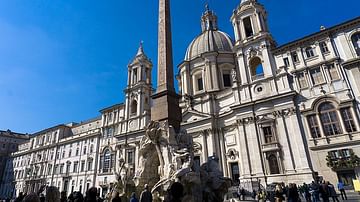
Article
Rome's Egyptian Heritage
The Eternal City of Rome is one of the places in the world with the most historical sites to visit. The list of ancient ruins, museums, churches, and other historical landmarks makes the city an Eldorado for anyone interested in history...
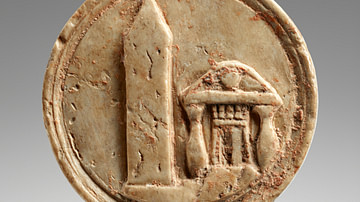
Article
Museums in the Ancient Mediterranean
Museums have been around much longer than one might think, but in the ancient world, they were principally institutions of research and learning rather than places to display artworks and artefacts, even if they were often located in grand...